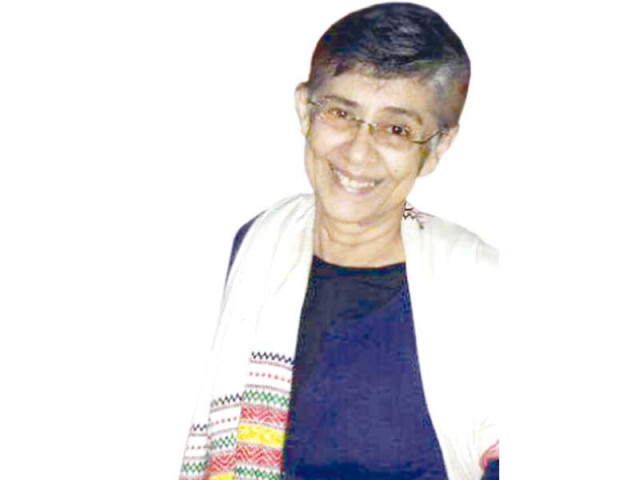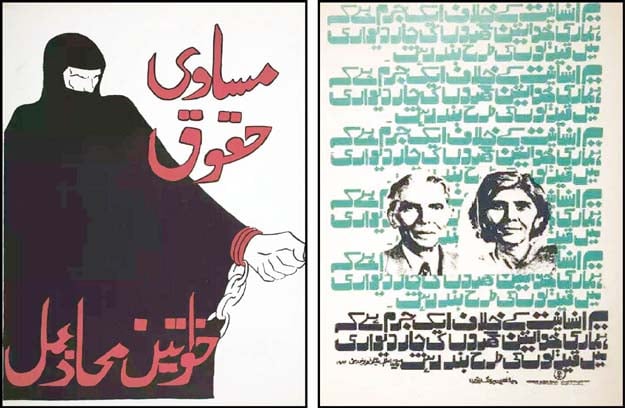Artist and prominent activist Lala Rukh passes away
She was one of the founders of Women’s Action Forum

The 69-year-old artist was diagnosed with cancer last month and died at her home in the city where she lived with her sister. She was among a group of 15 women who stood up against General Ziaul Haque’s anti-women laws. Lala Rukh was considered the pioneer of photographic, minimalist tradition and feminist art in the country because of her simplistic drawings and camerawork.
She never married and adopted her sister’s daughter Mariam. She worked as director of the National College of Arts’ (NCA) MA Visual Arts Department for more than 25 years. She also co-founded the All Pakistan Music Conference in 1960, WAF in 1981 and Vasl Artists Trust in 2000. Her artistic journey was no short of the political concerns she fought for and that was often represented in work.

According to former NCA Principal Nazish Attaullah, Lala Rukh brought feminism to the campus and we considered her an integral figure in development of feminist art in the institution.
According to Night Saeed, her close aide and WAF member, Lala Rukh remained one of the most active members of the organisation and fought for women rights. “As an artist, her style of work is considered as a breakthrough in art and is exhibited in Pakistan and abroad,” she said.
According to Nighat, a lot of her faculty members and students considered themselves feminists because of Lala Rukh. Nighat said at present, her work is being exhibited in Athens and in Kassel, Germany at the 14th edition of ‘Documenta’ which is an international forum dedicated to displaying cutting edge contemporary art and has featured the likes of Picasso in the past.
She added Lala Rukh was a person who brought politics and her personality into one place and never separated the two. “There was an element of integrity with which she fused her personality into the art and never let go of her feminist concerns.”
Lala Rukh’s feminist position also remained dominant in all of the social movements she was associated with, be it workers and lawyers’ movement or her protest against the Orange Line project to safeguard heritage sites of the city, she said. “In fact, her own studio was knocked down to make way for the train.”
“All in all, she remained one the most committed and phenomenal members of the WAF and for me she was almost like a mainstay. She always agreed with me over several issues, making me feel personally very strong since i knew I had a person beside me,” said Nighat. “We have lost a major figure in the artistic, feminist and political circles of the country. Her contributions have been of great significance for so many decades.”
Published in The Express Tribune, July 8th, 2017.


















COMMENTS
Comments are moderated and generally will be posted if they are on-topic and not abusive.
For more information, please see our Comments FAQ